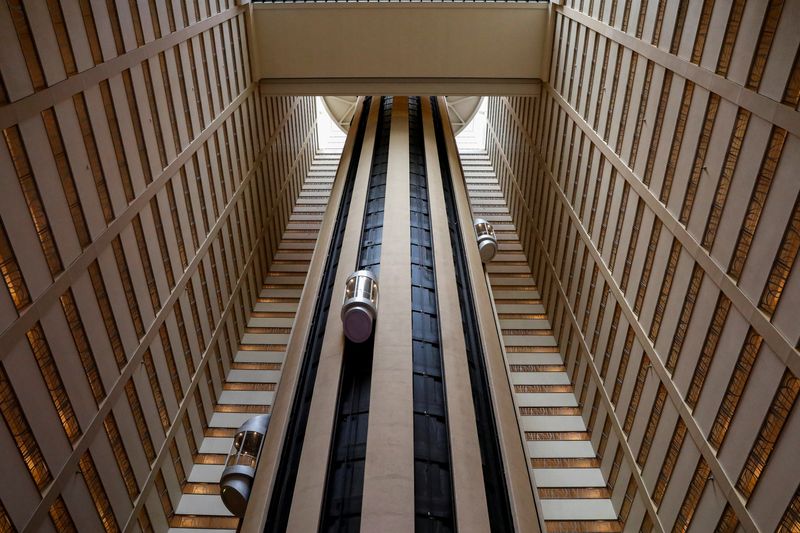By Doyinsola Oladipo and Priyamvada C
(Reuters) -Marriott International raised its full-year profit forecast on Tuesday, as the U.S. hotel operator bets on higher room rates and rebounding demand in China to boost earnings.
Hotel operators have begun to reap benefits from a strong rebound in international travel as the easing of pandemic-related restrictions and a strong dollar have emboldened U.S. consumers to travel overseas.
"While there is still a level of macroeconomic uncertainty, as we look into the third quarter, the consumer is generally holding up well and our forward bookings remain solid," Chief Financial Officer Kathleen Oberg said on an investor call.
Marriott shares were flat at midday.
The company expects full-year adjusted profit of $8.36 to $8.65 per share, up from the prior forecast of between $7.97 and $8.42 per share.
It posted second-quarter revenue of $6.08 billion, which beat analysts' average estimate of $5.99 billion, according to data from Refinitiv Eikon.
Marriott's revenue per available room, or RevPAR, an important hospitality industry metric, rose about 13.5% in the second quarter from a year earlier.
International room revenue rose 39%, led by China, which surpassed 2019 levels once travel restrictions were lifted in January, the company said.
"With the region's international airlift still only around 40% of 2019 capacity at the end of the second quarter, we believe there is still meaningful growth opportunity in and from Greater China," said CEO Anthony Capuano.
Room revenue in the U.S. and Canada rose 6% in the second quarter.
Marriott reported earnings of $2.38 per share, compared with analysts' forecast of $2.18 per share.

It raised its full-year forecast for the growth in the number of rooms in its portfolio to between 6.4% to 6.7%, from prior guidance of 4% to 4.5%. Marriott expects to benefit from a licensing deal with casino operator MGM Resorts (NYSE:MGM) International which added 17 resorts to its U.S. and Canada portfolio.
Two of the key pushbacks from investors have been slowing U.S. revPAR and the room growth guidance, which, excluding MGM, is a touch lower than in the first quarter, said Bernstein analyst Richard Clarke.